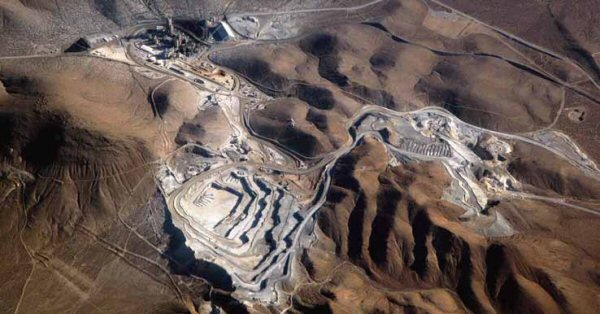SEJournal Online is the digital news magazine of the Society of Environmental Journalists. Learn more about SEJournal Online, including submission, subscription and advertising information.
Science Survey
By CHERYL HOGUE
“Doing more with less” is a slogan that frequently accompanies budget and personnel cuts in government and other organizations, including newsrooms.
Now, an international panel of scientists brought together by the United Nations is focused on this theme too. It is providing advice to help the world do more with fewer natural resources, such as fossil fuels, metals and rare earth materials, while wreaking less environmental damage, such as pollution and ecosystem destruction, from their extraction and use.
The panel’s reports, and the policy discussions they provoke, will provide solid story material for environmental journalists.
The International Resource Panel (IRP) is analogous to another global scientific group familiar to most SEJ members — the Intergovernmental Panel on Climate Change. Formed in 2007 by the United Nations Environment Programme, IRP is conducting scientific assessments on the sustainable use of natural resources and the environmental impacts of resource extraction, use, recycling and disposal.
 |
|
A new U.N. panel is helping the world do more with fewer natural resources, while reducing environmental damage from their extraction at such places as this open pit mining operation in California's Mojave Desert. Photo © Roger Archibald.
|
“People believe environmental ‘bads’ are the price we must pay for economic ‘goods,’” says Achim Steiner, executive director of the United Nations Environment Programme. “However, we cannot, and need not, continue to act as if this trade-off is inevitable.”
The main focus of IRP is how to separate economic growth from the rate at which resources are used and from the degree of adverse environmental impacts that accompanies their extraction and use. The panel calls this process “decoupling,” a term that might be familiar to those who have studied electronics or physics.
Decoupling is not as simple as it sounds. Any talk of decoupling the economy from the environment “is physical and practical nonsense,” says Mark Swilling, a lead author of an IRP report which was released in May.
The world economy is expanding and expected to continue to do so. The rate of natural resource use is anticipated to rise as developing countries climb out of poverty and more people have access to the amenities that can make modern life long and pleasant. Decoupling is the idea of using fewer resources per unit of economic output — such as less water per bushel of corn or less energy for each manufactured product — and lowering the rate of ecological damage while doing so.
There are big challenges ahead, IRP’s report says. For example, deposits of the highest-quality and most easily accessible mineral ores and fossil fuels are being exhausted. Extraction from newer, more far-flung, or lower-quality sources takes additional energy and wreaks greater environmental damage, such as land disruption and more intensive use of water and energy, the report says. And extraction of resources is increasingly happening in countries with weaker environmental protections, which often leads to greater ecological impacts per unit of extracted material.
Industry has been a leader in decoupling — it has developed more resource- and energy-efficient methods that produce less waste and pollution. But IRP’s recent report says the decoupling needed for a sustainable society will require behavior changes by corporations and consumers and new government policies.
Swilling, academic director of the Sustainability Institute at the University of Stellenbosch in South Africa, says the bottom line for decoupling is this: shifting the main driver of the global economy from debt-financed consumption to sustainability-oriented investments in innovation.
Steiner says, “Decoupling is part of a transition to a low carbon, resource-efficient green economy needed in order to stimulate growth, generate decent kinds of employment and eradicate poverty in a way that keeps humanity’s footprint within planetary boundaries.”
IRP is likely to be a solid source of story ideas. The panel is preparing reports that will offer policy options for decoupling in specific sectors. Those reports will address the flow of metals through the economy, land and soil, technology to reduce greenhouse gas emissions, recycling, and water.
Cheryl Hogue reports for Chemical & Engineering News. She wants to decouple the space in her house from the clutter it collects.
Sources:
- International Resource Panel
- IRP report on decoupling
- Mark Swilling, lead author of the IRP report on decoupling, and academic director, Sustainability Institute at the University of Stellenbosch in South Africa
- Ernst U. von Weizsacker, co-chair of the IRP and dean, Bren School of Environmental Science & Management, University of California, Santa Barbara
- Nick Nuttall, United Nations Environment Programme spokesperson, phone + 254 20 7623084, mobile +254 733 632755 or +41 79 596 57 37
* From the quarterly newsletter SEJournal, Summer 2011 issue.












